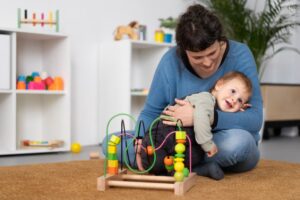
Academic excellence is crucial for the development of young, energetic brains. It provides a platform to enhance a child’s inner potential and capabilities. Education isn’t a privilege these days. It’s rather a necessity that makes us worthy and adds meaning to our lives. The learning process can however be delayed if not supported with efficient listening and speaking skills. Children who face trouble receiving and processing auditory information may be disrupted in their intellectual growth by challenges caused due to such conditions.
Therefore, researchers have designed therapies for such children to assist them overcome their condition, allowing them to learn and stand out on an equal ground with other children.
Awareness of such conditions is crucial for being able to diagnose them in an early stage. Children with these conditions struggle with low self-esteem, have difficulty managing stress as well as emotional and social problems. This marks the importance of its diagnostics.
Auditory Processing Disorder (APD) is a disorder of the auditory (hearing) system that causes an obstruction in the way that an individual’s brain doesn’t completely understand what it hears. This is because their ears and brain are unable to coordinate effectively. An interference disturbs the way the brain recognizes and interprets sounds, especially speech. It often begins in childhood yet some may develop it later.
It can affect the way your child speaks as well as their ability to read, write, and spell. They may listen attentively to a speech that is loud and clear, yet receive a muddled, confusing message. Thus, APD can possess a significant impact on the learning process of a child.
Diagnosing Auditory Processing Disorder (APD)
Early researchers suggest that; easy distraction by background noise, Inability to recall the order of sounds in a word and differentiate two distinct sounds, difficulty in reading, spelling and following instructions and slow processing of thoughts are some of the basic symptoms of APD.
However, one should keep in mind that not all language and learning issues are caused by APD, and not all APD cases result in language and learning issues. A checklist of symptoms cannot be used to diagnose APD. Regardless of how many APD symptoms a child exhibits, only thorough and precise tests can identify the underlying reason.
To accurately analyze and comprehend the cluster of issues displayed by children with APD, a multidisciplinary team approach is essential. A teacher or educational diagnostician can therefore shed light on academic challenges; a psychologist can assess cognitive functioning across a range of domains; a speech-language pathologist can look at writing and oral language, speech, and related abilities; and so on.
In their assessments, some of these professionals might even claim that a child has an Auditory Processing disorder. Although the information from the multidisciplinary team is helpful in understanding the child’s general areas of strength and weakness, it is crucial to understand that none of the measurement units used by these professionals are diagnostic tools for APD, and an audiologist must make an actual diagnosis of APD.
The type of the disorder is identified when an APD diagnosis has been obtained. Due to the diversity of auditory processing abnormalities and the unique nature of each child, APD can take many different forms. Therefore, it is important to identify the sort of auditory impairment a particular kid displays in order to prescribe personalized management and treatment activities that target his or her particular areas of difficulty.
The connection between Auditory Processing Disorder (APD) and Dyslexia
The symptoms of APD strongly resemble those of Dyslexia. Like with APD, individuals with dyslexia can have trouble learning and performing activities, particularly those that involve reading or spelling.
Children with dyslexia are often referred to the audiologist to be evaluated for Auditory Processing Disorder (APD). The relationship between dyslexia and APD can be confusing.
However, instead of affecting the part of the brain that processes sounds, dyslexia affects the part of the brain that processes language.
When a dyslexic child is referred to the audiologist to be evaluated for an auditory processing disorder, the audiologist will likely use a battery of tests that utilize both simple auditory stimuli such as tones, clicks, and noise bursts and complex stimuli such as speech to assess the auditory deficits that the behavior describes.
There is a great deal of debate over whether the deficiencies shown in dyslexic people are solely language-based or whether they could be the result of a more serious auditory perception issue. The auditory system is essential for language development, and there is strong evidence that suggests that auditory perception abnormalities at the periphery can result in substantial delays and disorders of language development.
Such conditions shall not remain neglected as it has a great impact on the child’s self-esteem and emotional wellbeing. Continued barriers and difficulties caused by such disorders can result in depression, anxiety, aggressiveness, and even more severe mental health concerns. Therapies, brain training and emotional support can help them cope up and perform well both socially and academically. Brainnovation is a center that focuses on providing support as well as professional training that helps these children cope up not only emotionally but also academically and socially. What makes it one of the best centers to help train children with speech and language disorders in Dubai, is that the training program focuses on each individual child and believes in training them in a specific way that works the best for them, not believing in “one size that fits all”.






